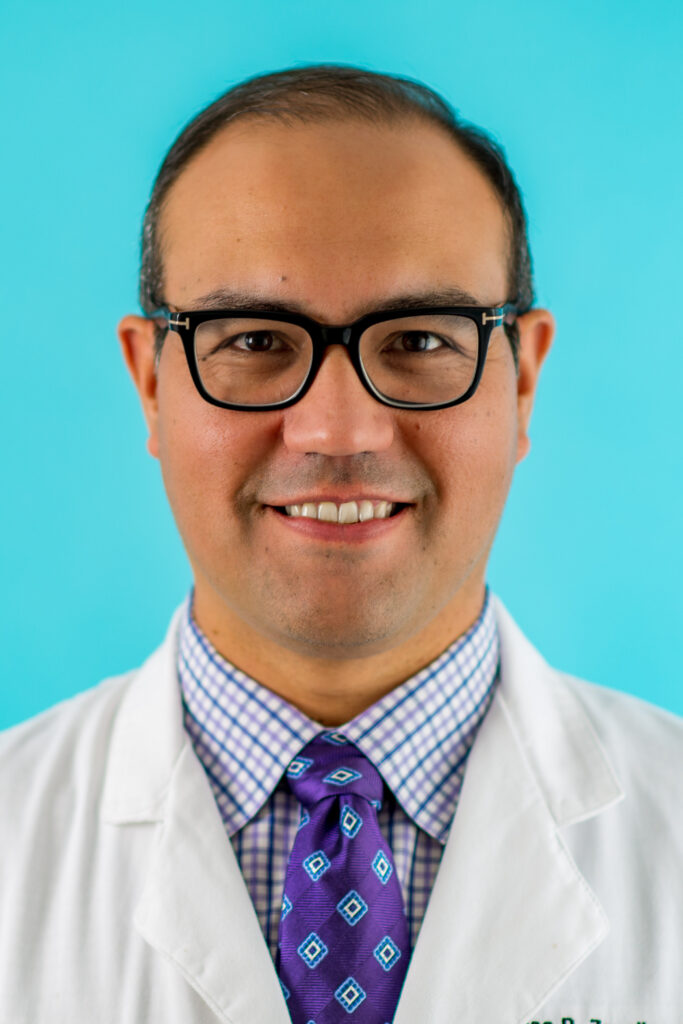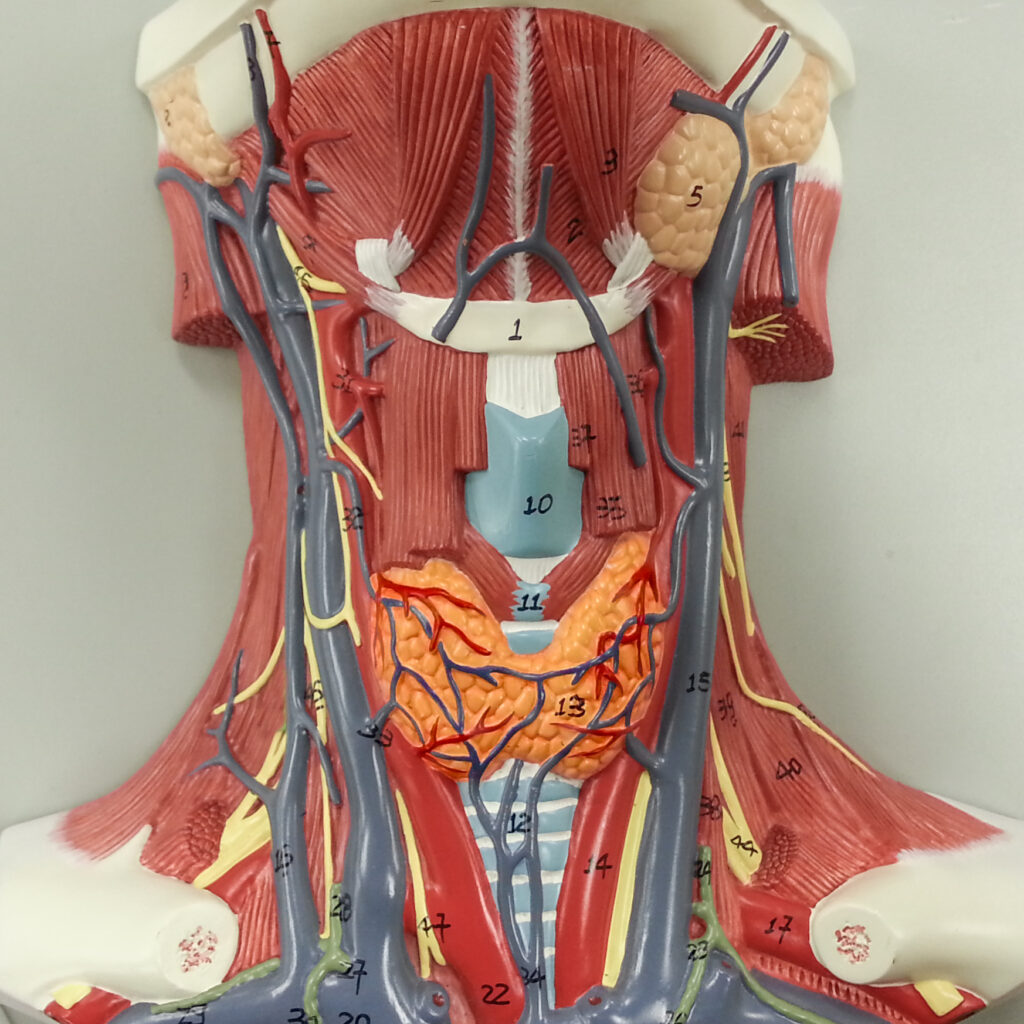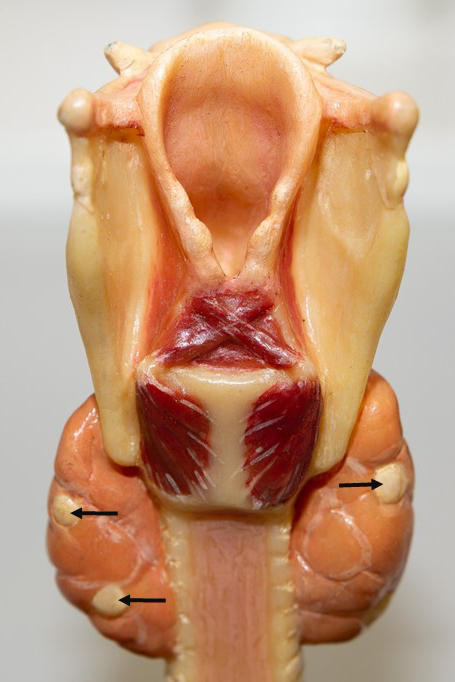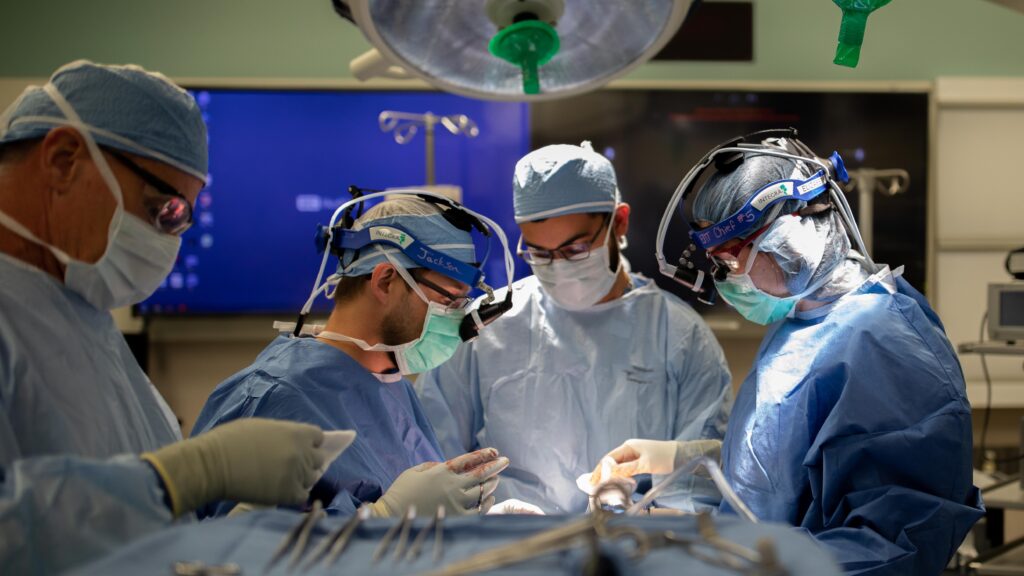Jose Zevallos, MD, division chief of Head and Neck Surgery in the Department of Otolaryngology at Washington University has developed a new niche in his head and neck practice – endocrine surgery. He is now among the busiest thyroid and parathyroid surgeons in the region, doing several cases each week between Barnes-Jewish Hospital and Christian Hospital Northeast. He finds the surgery both rewarding and challenging.

“While these surgeries are commonly done, improved outcomes are associated with high-volume surgeons,” he said. “A significant part of my practice focuses on second opinions, advanced cancers, and repeat surgeries in patients who previously had incomplete resections or develop thyroid cancer recurrence.”
Many patients who get thyroid and parathyroid surgery are otherwise very healthy and tend to be young. Quality of life and excellent surgical outcomes are very important. The nerves that move the vocal cords and help give your voice pitch and tone need to be identified and kept safe during surgery. Zevallos agreed this is probably his most important concern as the surgeon.
Surgery involves removal of all or part of the thyroid gland or one or more parathyroid glands. These procedures can impact hormones produced by these glands for distribution throughout the body.

“Working closely with endocrinology in deciding candidacy for surgery is another very rewarding part of my role,” said Dr. Zevallos. “Not every patient with a thyroid nodule needs a biopsy or surgery, and making multidisciplinary decisions along the way ensures the best outcomes for our patients.”
The thyroid gland is a small organ that’s located in the front of the neck, wrapped around the windpipe (trachea). It’s shaped like a butterfly, smaller in the middle with two wide wings that extend around the side of your throat.
Your thyroid creates and produces hormones that play a role in many different body systems. When your thyroid makes either too much or too little of these important hormones, it’s called a thyroid disease. There are several different types of thyroid disease, including hyperthyroidism, hypothyroidism, thyroiditis and Hashimoto’s thyroiditis.

The thyroid is one of a number of endocrine glands that produce hormones to control the activity levels of many organ systems. Thyroid hormones like T3 and T4 tell the body’s tissues how much energy to use, to keep metabolism at an appropriate level. It also produces calcitonin which helps regulate calcium levels in the blood.
Parathyroid disease affects the parathyroid glands, four pea-sized bodies embedded in the posterior part of the thyroid gland. These glands produce parathyroid hormone (PTH), which helps maintain the correct levels of calcium in the body by opposing the action of calcitonin. Normally, the glands release just enough PTH to keep calcium levels normal. Disease states like hyper- and hypoparathyroidism and parathyroid cancer can disrupt this delicate balance.
The American Head & Neck Society (AHNS) in 2016 established a section on endocrine surgery to provide the first organizational home for surgeons who have a special interest in this specialty. Zevallos says the new section means greater support for surgeons and trainees and better promotion of research, education and progress in this specialized field.
